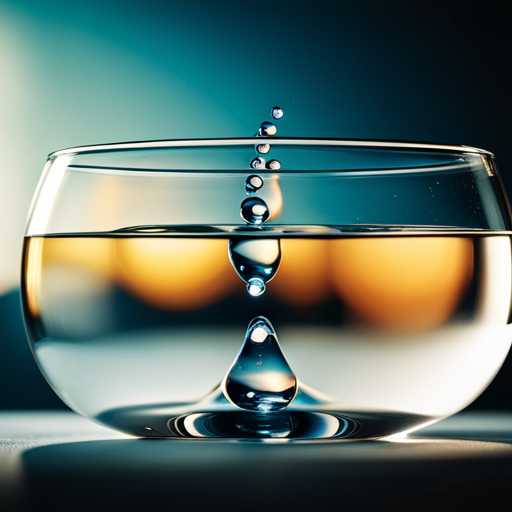Are you tired of seeing those stubborn hard water stains on your plastic containers and utensils? No matter how much you scrub, these stains seem to never go away. But don’t worry, you’re not alone in this struggle.
Hard water stains are a common problem that many of us face, especially if you live in an area with high mineral content in the water. Luckily, there are several effective methods to remove these stains and keep your plastic looking new.
In this article, we’ll explore different causes and types of hard water stains on plastic and provide you with some easy and affordable methods to get rid of them. From using natural remedies to specialized cleaning products, we’ve got you covered.
We’ll also give you some tips on how to prevent these stains from forming in the first place and how to maintain the cleanliness of your plastic items. So, say goodbye to those unsightly stains and hello to a sparkling clean plastic!
Key Takeaways
– Hard water stains on plastic are caused by mineral deposits like calcium and magnesium, and there are different types of stains including limescale and soap scum.
– To prevent hard water stains, regular cleaning and wiping down of plastic items is recommended, along with investing in a water softener or using distilled/filtered water.
– Vinegar and water solution, magic eraser, lemon juice, and toothpaste can be effective in removing hard water stains from plastic, but strong chemicals should be avoided for food and drink items.
– Hard water stains can affect the cleanliness and appearance of plastic products, but understanding their causes and effects can help effectively tackle the problem.
Causes and Types
You may be wondering about the causes and types of hard water stains on plastic. Hard water stains are caused by mineral deposits, specifically calcium and magnesium, that are left behind when water evaporates. These deposits can build up over time, leaving unsightly and chalky stains on plastic products like outdoor furniture, plasticware, cups, and containers.
There are different types of hard water stains that can appear on plastic, such as limescale and soap scum. Limescale is caused by the buildup of calcium and magnesium in hard water, while soap scum is a combination of soap residue and mineral deposits.
To identify hard water in your home, look for signs like white spots on dishes, dry skin and hair, and a buildup of soap scum in your shower. Understanding the types and effects of hard water stains on plastic can help you better tackle the problem.
Removal Methods
Try soaking the affected plastic item in a solution of vinegar and water for about 30 minutes to help remove the unsightly and chalky mineral deposits caused by hard water. Mix equal parts of white vinegar and water in a bowl or container and completely submerge the plastic item in the solution. After soaking, use a soft sponge or cloth to gently scrub away the stains. Rinse the item with water and dry thoroughly.
If vinegar doesn’t work, there are other chemical alternatives and natural remedies you can try. For instance, you can use a magic eraser or try soaking the plastic item in lemon juice for about 10 minutes. Toothpaste can also be a great option for gentle scrubbing. However, it’s important to note that strong chemicals are not safe for food or drink items, so always read product labels carefully before using any cleaning solution. Remember, wiping down plastic products after contact and using water softeners can help prevent hard water stains from occurring in the first place.
Prevention and Maintenance
Maintaining the cleanliness of your plastic items can be achieved by regularly wiping them down after use and investing in a water softener to prevent the buildup of mineral deposits caused by hard water.
Regular cleaning of plastic items is important to prevent unsightly hard water stains from forming. After each use, take a damp cloth or sponge and wipe down the plastic item to remove any leftover residue or water droplets. This will prevent any hard water stains from forming and keep the plastic looking clean and new.
Investing in a water softener can also help prevent the buildup of mineral deposits on plastic items. Hard water contains high levels of calcium and magnesium, which can leave behind chalky stains on your plastic items. A water softener removes these minerals from the water, preventing the formation of hard water stains.
Additionally, using distilled water or filtered water can also help prevent hard water stains from forming. By taking these preventive measures and regularly cleaning your plastic items, you can say goodbye to hard water stains for good!




